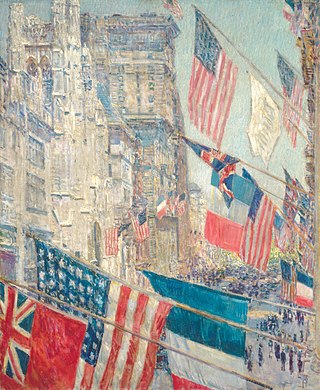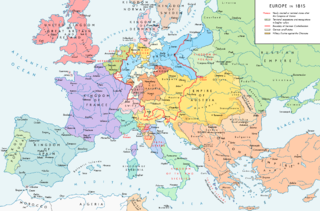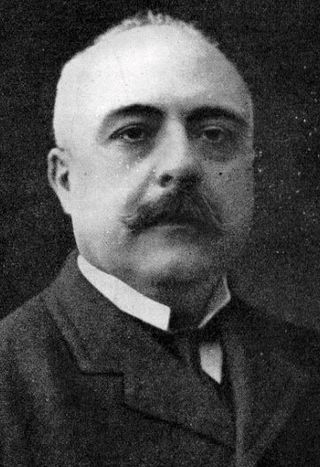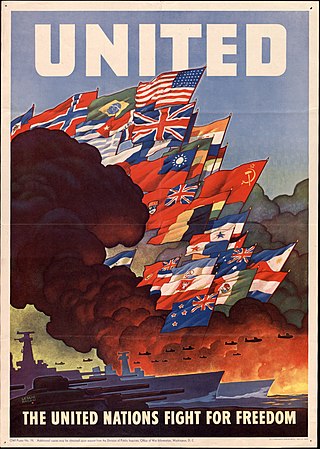Related Research Articles
Entente, meaning a diplomatic "understanding", may refer to a number of agreements:

The Axis powers, originally called the Rome–Berlin Axis, was a military coalition that initiated World War II and fought against the Allies. Its principal members were Nazi Germany, the Kingdom of Italy, and the Empire of Japan. The Axis were united in their far-right positions and general opposition to the Allies, but otherwise lacked comparable coordination and ideological cohesion.

The Tripartite Pact, also known as the Berlin Pact, was an agreement between Germany, Italy, and Japan signed in Berlin on 27 September 1940 by, respectively, Joachim von Ribbentrop, Galeazzo Ciano, and Saburō Kurusu and in the presence of Adolf Hitler. It was a defensive military alliance that was eventually joined by Hungary, Romania, Bulgaria, and Yugoslavia as well as by the German client state of Slovakia. Yugoslavia's accession provoked a coup d'état in Belgrade two days later. Germany, Italy, and Hungary responded by invading Yugoslavia. The resulting Italo-German client state, known as the Independent State of Croatia, joined the pact on 15 June 1941.

An alliance is a relationship among people, groups, or states that have joined together for mutual benefit or to achieve some common purpose, whether or not an explicit agreement has been worked out among them. Members of an alliance are called allies. Alliances form in many settings, including political alliances, military alliances, and business alliances. When the term is used in the context of war or armed struggle, such associations may also be called allied powers, especially when discussing World War I or World War II.

The Triple Alliance was a defensive military alliance between Germany, Austria-Hungary, and Italy. It was formed on 20 May 1882 and renewed periodically until it expired in 1915 during World War I. Germany and Austria-Hungary had been closely allied since 1879. Italy was looking for support against France shortly after it lost North African ambitions to the French. Each member promised mutual support in the event of an attack by any other great power. The treaty provided that Germany and Austria-Hungary were to assist Italy if it was attacked by France without provocation. In turn, Italy would assist Germany if attacked by France. In the event of a war between Austria-Hungary and Russia, Italy promised to remain neutral. The existence and membership of the treaty were well known, but its exact provisions were kept secret until 1919.

The Entente Cordiale comprised a series of agreements signed on 8 April 1904 between the United Kingdom and the French Republic which saw a significant improvement in Anglo-French relations. On the surface, the agreement dealt with minor issues related to fishing and colonial boundaries. Egypt was recognized as part of Britain's sphere of influence, and Morocco as part of France's. The Entente was not a formal alliance and did not involve close collaboration, nor was it intended to be directed against Germany. However, it paved the way for a stronger relationship between France and Britain in the face of German aggression. It should not be mistaken for the official Anglo-French military alliance, which was only established after the outbreak of World War I in 1914.

The Pact of Steel, formally known as the Pact of Friendship and Alliance between Germany and Italy was a military and political alliance between Italy and Germany.

A military alliance is a formal agreement between nations that specifies mutual obligations regarding national security. In the event a nation is attacked, members of the alliance are often obligated to come to their defense regardless if attacked directly. Military alliances can be classified into defense pacts, non-aggression pacts, and ententes. Alliances may be covert or public.

The Concert of Europe was a general agreement among the great powers of 19th-century Europe to maintain the European balance of power, political boundaries, and spheres of influence. Never a perfect unity and subject to disputes and jockeying for position and influence, the Concert was an extended period of relative peace and stability in Europe following the Wars of the French Revolution and Napoleonic Wars which had consumed the continent since the 1790s. There is considerable scholarly dispute over the exact nature and duration of the Concert. Some scholars argue that it fell apart nearly as soon as it began in the 1820s when the great powers disagreed over the handling of liberal revolts in Italy, while others argue that it lasted until the outbreak of World War I and others for points in between. For those arguing for a longer duration, there is generally agreement that the period after the Revolutions of 1848 and the Crimean War (1853–1856) represented a different phase with different dynamics than the earlier period.

The Anti-Comintern Pact, officially the Agreement against the Communist International was an anti-Communist pact concluded between Nazi Germany and the Empire of Japan on 25 November 1936 and was directed against the Communist International (Comintern). It was signed by German ambassador-at-large Joachim von Ribbentrop and Japanese ambassador to Germany Kintomo Mushanokōji. Italy joined in 1937, but it was legally recognised as an original signatory by the terms of its entry. Spain and Hungary joined in 1939. Other countries joined during World War II.

The Little Entente was an alliance formed in 1920 and 1921 by Czechoslovakia, Romania and the Kingdom of Serbs, Croats and Slovenes with the purpose of common defense against Hungarian revisionism and the prospect of a Habsburg restoration in Austria or Hungary. France supported the alliance by signing treaties with each member country. The rapid growth of German power caused its collapse in 1938, and it never went into wartime operation.
A non-aggression pact or neutrality pact is a treaty between two or more states/countries that includes a promise by the signatories not to engage in military action against each other. Such treaties may be described by other names, such as a treaty of friendship or non-belligerency, etc. Leeds, Ritter, Mitchell, & Long (2002) distinguish between a non-aggression pact and a neutrality pact. They posit that a non-aggression pact includes the promise not to attack the other pact signatories, whereas a neutrality pact includes a promise to avoid support of any entity that acts against the interests of any of the pact signatories. The most readily recognized example of the aforementioned entity is another country, nation-state, or sovereign organization that represents a negative consequence towards the advantages held by one or more of the signatory parties.

The Treaty of London or the Pact of London was a secret agreement concluded on 26 April 1915 by the United Kingdom, France, and Russia on the one part, and Italy on the other, in order to entice the latter to enter World War I on the side of the Triple Entente. The agreement involved promises of Italian territorial expansion against Austria-Hungary, the Ottoman Empire and in Africa where it was promised enlargement of its colonies. The Entente countries hoped to force the Central Powers – particularly Germany and Austria-Hungary – to divert some of their forces away from existing battlefields. The Entente also hoped that Romania and Bulgaria would be encouraged to join them after Italy did the same.

Antonio Salandra was a conservative Italian politician, journalist, and writer, who served as the 21st prime minister of Italy between 1914 and 1916. He ensured the entry of Italy in World War I on the side of the Triple Entente to fulfil Italy’s irredentist claims.

The identification of the causes of World War I remains a debated issue. World War I began in the Balkans on July 28, 1914, and hostilities ended on November 11, 1918, leaving 17 million dead and 25 million wounded. Moreover, the Russian Civil War can in many ways be considered a continuation of World War I, as can various other conflicts in the direct aftermath of 1918.

The Declaration by United Nations was the main treaty that formalized the Allies of World War II and was signed by 47 national governments between 1942 and 1945. On 1 January 1942, during the Arcadia Conference, the Allied "Big Four"—the United States, the United Kingdom, the Soviet Union, and China—signed a short document which later came to be known as the United Nations Declaration, and the next day the representatives of 22 other nations added their signatures.
A separate peace is a nation's agreement to cease military hostilities with another even though the former country had previously entered into a military alliance with other states that remain at war with the latter country. For example, at the start of the First World War, Russia was a member, like the United Kingdom and France, of the Triple Entente, which went to war with the Central Powers formed by Germany and Austria-Hungary, later joined by the Ottoman Empire and Bulgaria. After the abdication of Nicholas II during the February Revolution and the subsequent Russian Provisional Government's overthrow by the Bolsheviks during the October Revolution, Russia defaulted on its commitments to the Triple Entente by signing a separate peace with Germany and its allies in 1917. This armistice was followed on March 3, 1918, by the formal signing of the Treaty of Brest-Litovsk.

The Allies, formally referred to as the United Nations from 1942, were an international military coalition formed during World War II (1939–1945) to oppose the Axis powers. Its principal members by the end of 1941 were the "Big Four" - United Kingdom, United States, Soviet Union, and China.

The Entente, or the Allies, were an international military coalition of countries led by France, the United Kingdom, Russia, the United States, Italy, and Japan against the Central Powers of Germany, Austria-Hungary, the Ottoman Empire, and Bulgaria in World War I (1914–1918).

The Western Union (WU), also referred to as the Brussels Treaty Organisation (BTO), was the European military alliance established between France, the United Kingdom (UK) and the three Benelux countries in September 1948 in order to implement the Treaty of Brussels signed in March the same year. Under this treaty the signatories, referred to as the five powers, agreed to collaborate in the defence field as well as in the political, economic and cultural fields.
References
- 1 2 3 4 Volker Krause, J. David Singer "Minor Powers, Alliances, And Armed Conflict: Some Preliminary Patterns", in "Small States and Alliances", 2001, pp 15-23, ISBN 978-3-7908-2492-6 (Print) ISBN 978-3-662-13000-1 (Online)